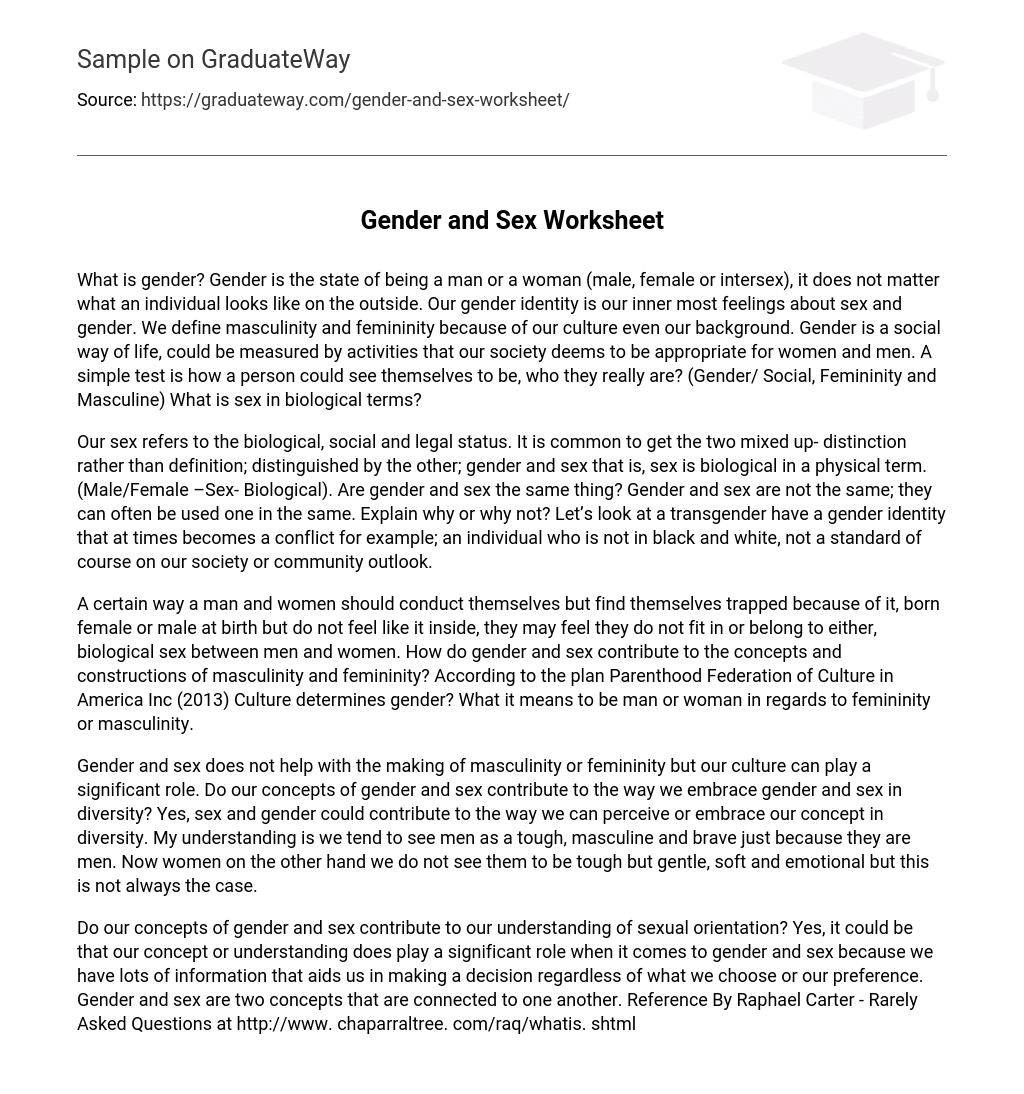The concept of gender encompasses being a man or woman (male, female, or intersex), irrespective of outward appearances. Gender identity reflects our deepest emotions regarding sex and gender. Our cultural and background factors influence our understanding of masculinity and femininity. Gender is a social way of life, often influenced by societal expectations for men and women. One method to determine this is by considering individuals’ perception of themselves and their true essence (Gender/social, Femininity, and Masculinity). How is biological sex defined?
The term “sex” encompasses our biological, social, and legal status. It is often confused with gender as they both involve distinguishing characteristics rather than strict definitions. Gender can be influenced by factors like sex, but they are not identical concepts. To illustrate this, consider transgender individuals who often encounter difficulties regarding their gender identity. These individuals do not conform to the established norms of society or community.
The text explores societal expectations regarding gender roles and the sense of confinement experienced when individuals do not identify with their assigned gender. It prompts an inquiry into how both biological sex and cultural influences shape notions of masculinity and femininity. According to the Planned Parenthood Federation of Culture in America Inc (2013), culture is instrumental in establishing gender norms and defining the qualities associated with being a man or a woman.
Although gender and sex do not directly determine masculinity or femininity, our culture plays a significant role in shaping these concepts. Our understanding of gender and sex can influence how we perceive and embrace diversity in these aspects. Traditionally, men have been regarded as tough, masculine, and brave solely based on their gender, while women are often portrayed as gentle, soft, and emotional. Nonetheless, it is crucial to acknowledge that these stereotypical characteristics may not always be true.
According to Raphael Carter’s article on Rarely Asked Questions at http://www.chaparraltree.com/raq/whatis.shtml, our perception of sexual orientation can be influenced by our beliefs about gender and sex. Regardless of our individual preferences, we have access to abundant information that helps us make informed decisions. The article states that gender and sex are interconnected concepts.





